Explore the best places
Monuments in Porto
Fonte do Bicho
- heritage
Largo de Artur Arcos
4050, Porto
Fountain that, in 1821, replaced the former Fonte da Ermida (from the XV century). It owes its name to the fact of the name of the fish that the water comes from was never found.

Fonte dos Leões
- heritage
Praça de Gomes Teixeira, 10
4050-526, Porto
The Leões Fountain, from 1878, is at the Praça Gomes Teixeira centre. This fountain, made in cast iron, was created in 1877 by the Compagnie Générale des Eaux pour L'Etranger. This company was responsible of the water in the city. The fountain has three overlapped cups and four winged lions where the water flows from.
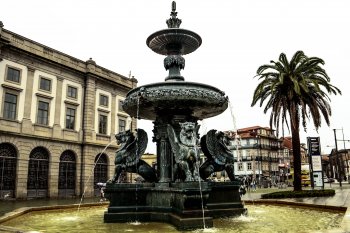
Obeliscos da Quinta da Prelada
- heritage
Rua do Passeio Alegre
4150, Porto
This obelisks coming from the Quinta da Prelada are two XVIII century works, made by Nicolau Nasoni. They were later associated with the entrance of the D. Pedro’s troops in the city.
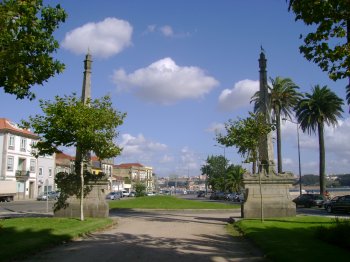
Chafariz do Laranjal
- heritage
Largo da Trindade
4000, Porto
The Chafariz do Laranjal has a central column with ajutages spilling water into a tank. Before being placed at the Largo da Trindade, this fountain used to be at the Nova Sintra Gardens, in Campanhã.
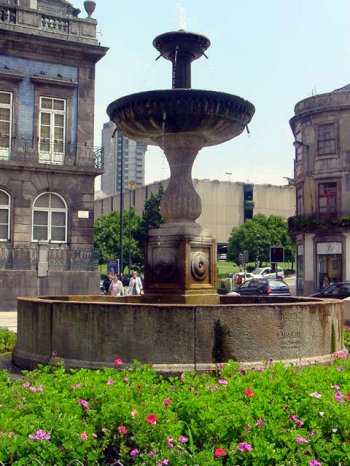
Fonte das Taipas
- heritage
Rua das Virtudes
4050, Porto
This fountain exists by the people’s will. It was built in 1772, after a petition made to the City council by the Largo do Postigo das Virtudes inhabitants. It is shaped like a pyramid trunk laying on a cup. The water comes from the central ornament, an oval medallion and runs through the cup into a tank.
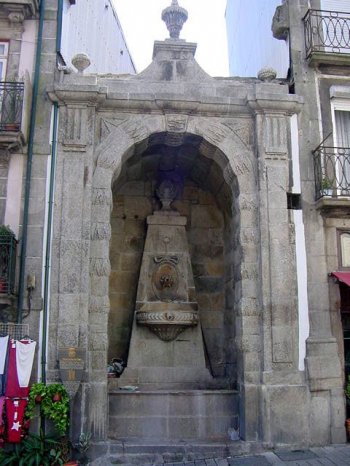
Igreja de Santo Ildefonso
- heritage
Rua de Santo Ildefonso, 11 - Praça da Batalha
4000-542, Porto
The Santo Ildefonso Church is placed at the beginning of the street with the same name. This church stands out immediately for its azulejos (tiles), which cover almost all of it. Its reconstruction started in 1730, because the first church was in ruins, and ended in 1737. The walls have Jorge Colaço’s azulejos (1932), with scenes from Saint Ildefonso’s life and Eucharist allegories. The lateral altars are neoclassical works and the co-lateral altars are rococo.
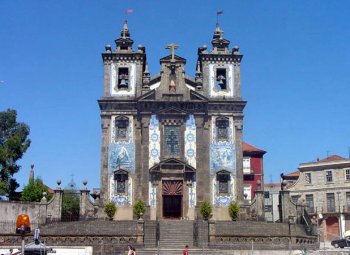
Paço Episcopal do Porto
- heritage
Terreiro da Sé
4000-603, Porto
The Porto’s Bishop's Palace is a building from the XVIII century, by Nicolau Nasoni. The construction is elegant, with three big floors. The downstairs floor has twelve windows with iron bars and the number of windows repeats on the other floors. Laterally, the windows have frames with showy frontons.

Igreja de São José das Taipas
- heritage
Campo dos Mártires da Pátria, 179
4050-091, Porto
The São José das Taipas Church is a neoclassical temple planned by Carlos Amarante (1795-1818). The author of the project joined the old São José Chapel, built in 1666, to this church. The church has a front covered with azulejos and ended by a turret.
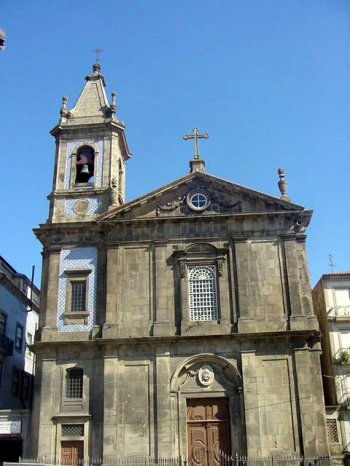
Edifício do Antigo Clube Inglês do Porto
- heritage
Rua das Virtudes, 11
4050-630, Porto
The building of the old Clube dos Ingleses (English Club) has two floors. The upstairs floor has balcony windows with iron bars ended by triangular and curved forms’ frontons. The main front opens to the ancient garden with three curved doors. Inside the building the hall with six arches, based on pillars, the stucco decoration and the paintings on the ceiling stand out.
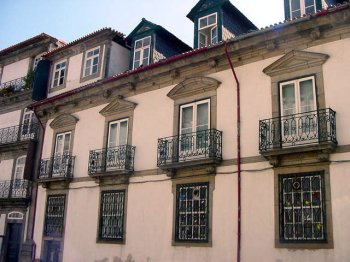
Igreja de Santa Clara
- heritage
Largo do 1° de Dezembro
4000-404, Porto
The Santa Clara Church is all that’s left of the convent with the same name, whose construction was ordered by Dona Filipa de Lencastre. This real treasure with golden carving is hidden at the Square. It keeps its initial gothic structure, although it suffered changes through the XVII and XVIII centuries.
